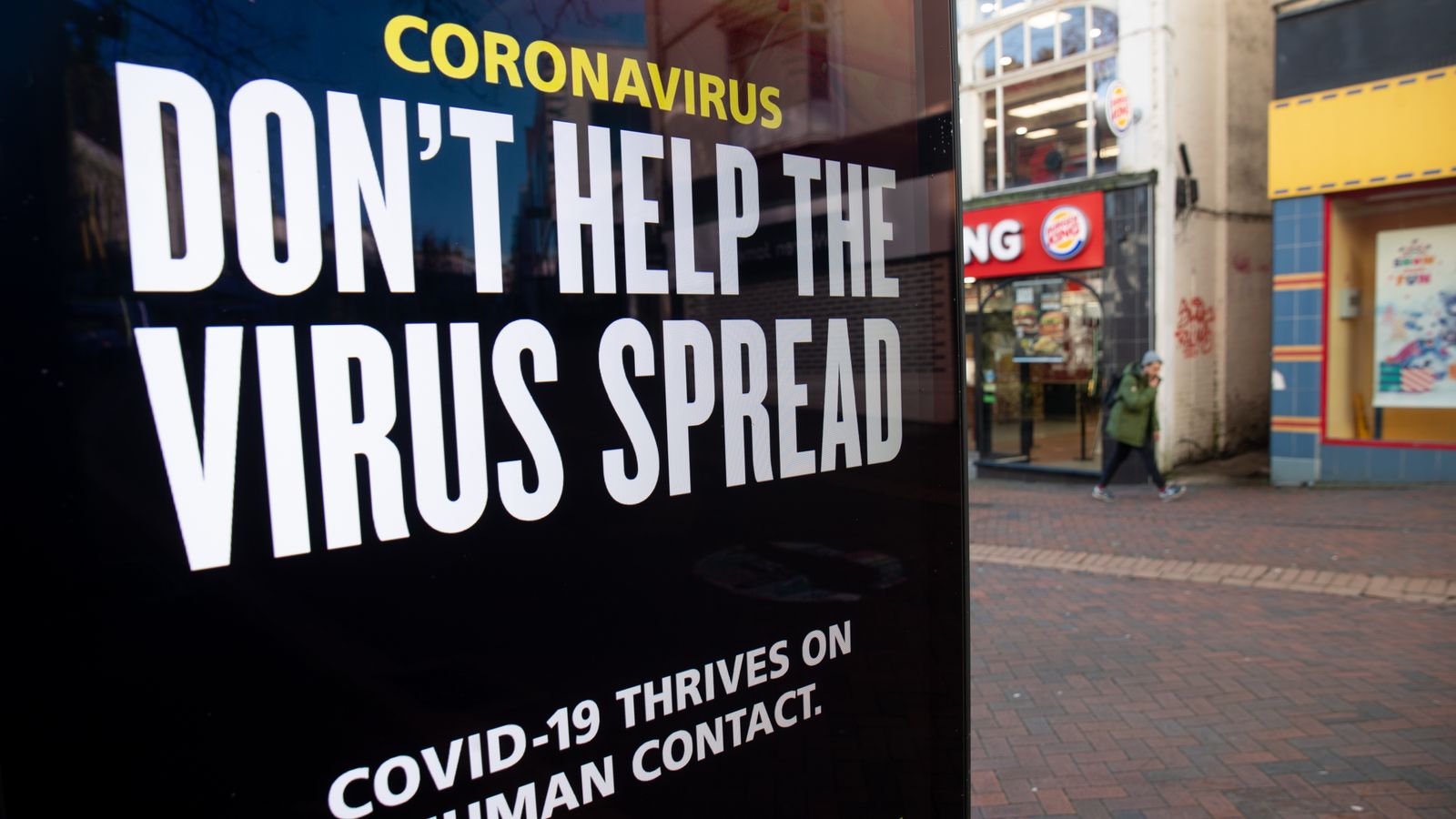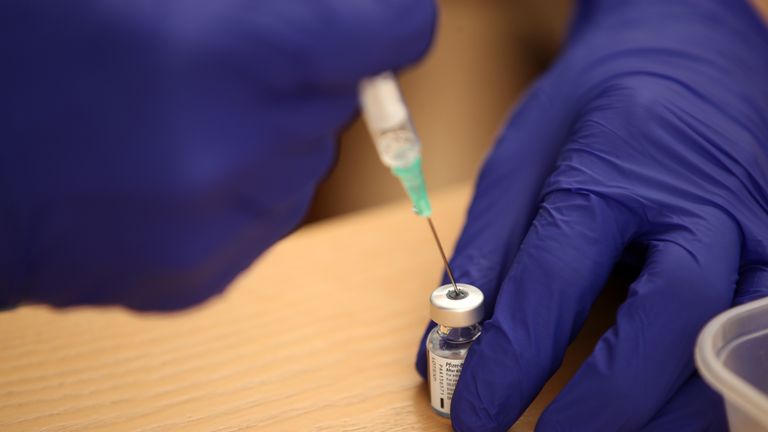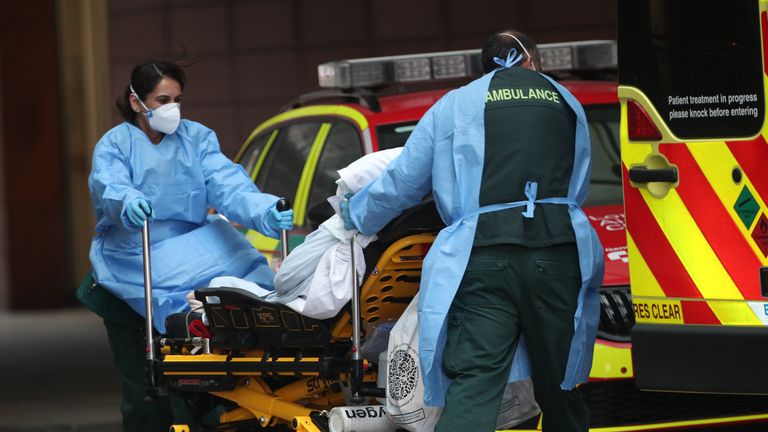It is still a “long, long, long way” before coronavirus cases are low enough for lockdown to be lifted, the health secretary has told Sky News.
Matt Hancock said “early evidence” shows tough restrictions around the UK are starting to bring the number of new infections down, but he warned the NHS remains under “enormous” pressure.
He also revealed “I really worry” about new COVID-19 variants not yet discovered and admitted the government is not sure whether schools in England will reopen fully by Easter.
Live COVID updates from UK and around the world
Speaking to Sophy Ridge On Sunday, Mr Hancock said: “We should be worried enough, all of us, about this pandemic to follow the rules and it is just so important that people do.
“This morning I’ve come out of my formal self-isolation, I haven’t actually left the house yet because I haven’t needed to.”
Delivering the latest vaccine news, Mr Hancock said 75% of all people aged 80 and over have now had their first coronavirus jab.
And he said the UK has given out more vaccines in the last three days than France has in total since the global race for inoculation against coronavirus began.
Mr Hancock dismissed press reports earlier this week that said £500 payments will be given to anyone who catches the disease to encourage them to properly self-isolate, saying “that isn’t government policy”.
But he refused to say whether Britain’s borders should be closed to protect people from new variants, given the ones discovered in South Africa and Brazil.
He said those two “might have a lower response to the vaccine”, though cautioned “we don’t know the degree of that”.
“The new variant I really worry about is the one that is out there that hasn’t been spotted,” Mr Hancock added.
Pressed on when lockdown will be eased, he said the current rules are helping “bring cases down” but that the country is a “long, long, long way from them being low enough”.
And Mr Hancock defended the 12 week gap between two Pfizer/ BioNTech vaccine doses, saying the policy will “save lives”.
Prof Anthony Harnden, deputy chair of the Joint Committee of Vaccination and Immunisation, also told Ridge they “carefully examined” the data from the Pfizer study and concluded the second dose can be delayed to 12 weeks with little impact on efficacy.
The jab is “89% effective… in the period from 15 to 21 days”, he explained, adding experts know “if you have protection as high as 89% on day 21, it is not really possible that this would have declined by much after just 84 days”.
It follows another 1,348 coronavirus-related deaths being reported on Saturday – taking the total to 97,329 since the pandemic began, according to the government.



